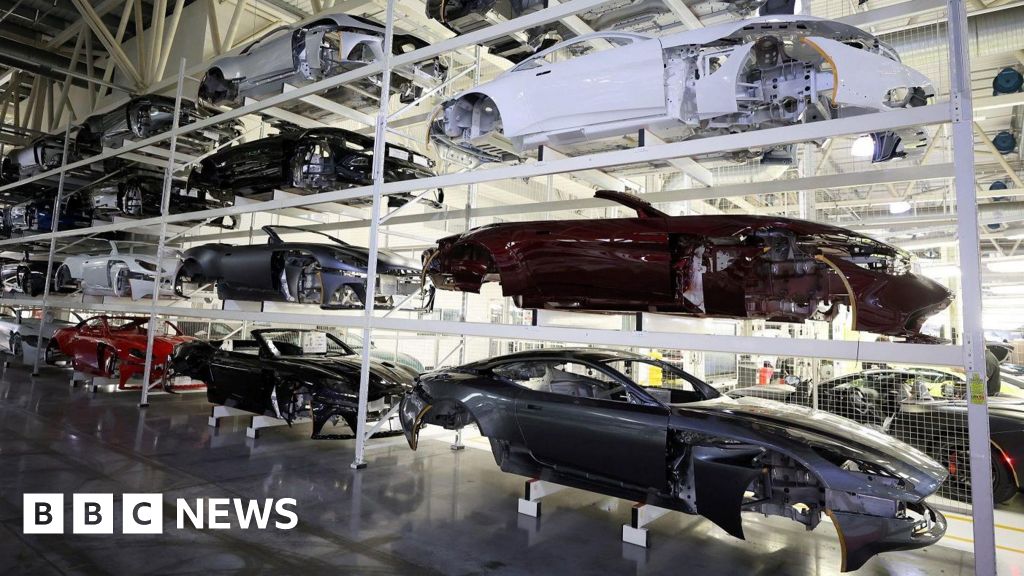UK car production sank to its lowest level since 1949 in May as US tariffs hit exports, an industry group has said. Production fell by nearly a third from a year earlier to 49,810 units, according to the Society of Motor Manufacturers and Traders (SMMT), which - excluding the 2020 Covid pandemic lockdowns - was the lowest figure for 76 years. Exports to the US halved as President Donald Trump's tariffs caused some UK car makers to halt shipments. Production was also hit by continuing work to change factories over to electric vehicle production, the SMMT said. The drop in exports to the US came after the Trump administration announced new 25% tariffs on cars and car parts in March. This "depressed demand instantly forcing many manufacturers to stop shipments", the SMMT said. Jaguar Land Rover suspended shipments to the US in April, while Aston Martin reduced exports, after the tariffs were imposed early in the month. The US share of UK exports fell from nearly a fifth to just over a tenth in May. However, in May the US and UK reached an agreement that included reducing import taxes on a set number of British cars from 25% to 10%. The deal is due to come into force before the end of June, so the taxes "should hopefully be a short-lived constraint" on production, the SMMT said. Mike Hawes, the SMMT's chief executive, said while 2025 has been "an incredibly challenging year", there is still "some optimism for the future". He said trade deals with "crucial markets", including the US, India, and the EU, plus UK government strategies on industry and trade, "should help recovery".
UK car output hit 76-year low in May as US tariffs hit exports
TruthLens AI Suggested Headline:
"UK Car Production Declines to Lowest Level Since 1949 Amid US Tariffs"
TruthLens AI Summary
UK car production experienced a significant decline in May, reaching its lowest level since 1949, according to the Society of Motor Manufacturers and Traders (SMMT). The output fell nearly a third compared to the previous year, totaling just 49,810 units. This decline, which is the lowest figure recorded in 76 years excluding the pandemic lockdowns of 2020, has been attributed primarily to the impact of US tariffs on car exports. Following the announcement of new 25% tariffs by the Trump administration in March, UK car manufacturers faced immediate repercussions, leading to a drastic reduction in shipments to the US. The SMMT reported that exports to the US halved, significantly affecting production levels, with notable manufacturers like Jaguar Land Rover and Aston Martin halting or reducing exports in response to the tariffs. The share of US exports from the UK fell from nearly 20% to just over 10% in May, highlighting the severity of the situation for the UK's automotive sector.
In addition to the tariff impact, the SMMT noted that production challenges were compounded by the ongoing transition of factories to electric vehicle production. Despite the current difficulties, there is a glimmer of hope for recovery. An agreement reached between the US and UK in May aims to reduce import taxes on a specific number of British cars from 25% to 10%, which is expected to take effect before the end of June. This reduction could alleviate some of the constraints on production, with SMMT chief executive Mike Hawes expressing cautious optimism for the future. He emphasized the importance of trade deals with key markets such as the US, India, and the EU, as well as supportive government strategies, to foster recovery in the automotive industry amidst these challenging circumstances.
TruthLens AI Analysis
You need to be a member to generate the AI analysis for this article.
Log In to Generate AnalysisNot a member yet? Register for free.
